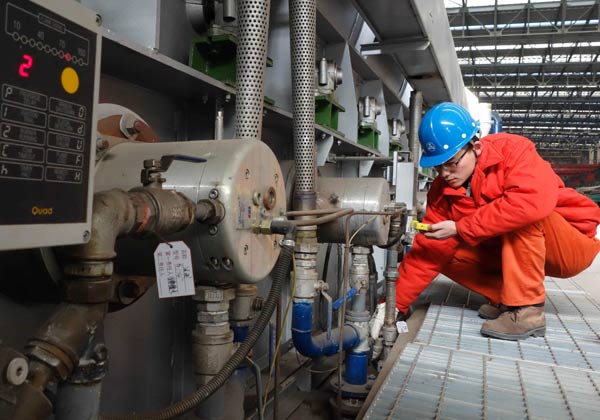If Miao Changxing, deputy director of industrial policy at China’s Ministry of Industry and Information Technology, gets his way, Chinese steel companies could soon begin a push into Africa.
That could be a good thing. Africa’s share of world steel production could use a major boost.
However, any Chinese enterprises entering the African market should be those that the Chinese government itself identifies as meeting the country’s rigid national iron and steel standards. Those deemed substandard could compromise efforts by Chinese companies already operating on the continent to improve their image.
That image has taken a beaten in Western, and some African, media.
China, the world’s largest steel producer with capacity at around 1 billion metric tons in 2012, has seen the home sector plagued by excess production as local governments increased the size of local steel companies to drive local economies. According to the International Steel Statistics Bureau’s December 2013 World Steel Review, Chinese steel production increased by 9.2 percent in October, bringing the ten months total up by 8.3 percent to 652 million metric tons, or 49 percent of world production.
“The global steel industry is developing unevenly, with some regions like Southeast Asia and Africa still having a big space to develop, and some nations such as China confronting overcapacity,” Miao was quoted as saying in local press reports.
According to those reports, Miao suggested Chinese enterprises could push forward development of the steel industry in these regions by supporting infrastructure construction, and by setting up joint venture enterprises and distribution centers in host countries.
In April, Miao’s ministry published a list of 45 Chinese steel enterprises that met national standards regarding product quality, environmental protection, energy consumption, workmanship and equipment and production scale, as well as work safety and other social responsibility. The 45 were chosen from among 104 firms located in 19 provinces, municipalities and autonomous regions.
Miao warned at the time that the companies that failed to meet the national standards would “have their room for development squeezed with higher electricity prices and stricter administrative measures.”
But what’s, or who’s, to stop these very companies from moving into Africa instead of scaling up to the new standards at home?
It’s a question that arises just as Chinese companies already operating in Africa say they are creating jobs for local residents and providing educational opportunities to young Africans to show that they care about the overall social and economic wellbeing of their host countries.
One of the most aggressive companies in this regard is Sinohydro Corp Ltd., the international arm of the Power Construction Corp of China, which has been involved in Africa since the early 1980s. To date, Sino hydro has completed more than 160 construction projects, including stadiums, hydropower stations, dams, bridges and various buildings in 25 African countries.
“As companies from Saudi Arabia, Qatar, India and Spain try to increase their market share in Africa’s vast infrastructure market, we have to develop this dynamic market, not only driven by economic motivation but also by concentrating on how we can help and what we can offer to the locals,” Zeng Xingliang, Sinohydro chairman, is quoted as saying in a December 23 article posted at The Africa Daily.
Africa accounts for more than 60 percent of Sinohydro’s global market share. Over the past four years, the company reportedly has paid the airfare, tuition fees and living allowances of 19 Angolans studying water resources and hydropower engineering at Wuhan University in Central China’s Hubei province over the past four years.
Upon graduation, these students will join Sinohydro projects as assistant engineers, including a $100 million water supply project in Luanda, Angola’s capital; new residential housing projects in Luanda; and a $1.69 billion Karuma hydropower project completed in Uganda in June.
Sinohydro says it will pay for another two Angolan graduates to take postgraduate courses at Wuhan University over the next three years, and will help more African students undertake degrees in infrastructure or related subjects in China.
In addition, The Africa Daily reports, the company is providing funding and scholarships to six primary schools and five high schools in the district where Sasuma Dam was built in Kenya, and computers, sport equipment, teaching materials and books to schools close to Bui hydroelectric power station in northern Ghana.
On the jobs front, Sinohydro says it has been building closer relations with local labor and suppliers.
Meanwhile, Beijing is making sure that steel companies behave well at home. It promises to raise the standards for pollutant emission and energy consumption for the steel industry, and severely punish companies that violate the environmental protection law.
Can/will Beijing also ensure that Chinese steel companies behave well in Africa? The answer should be of little, if any, consequence to those entrusted with the responsibility of safeguarding the welfare and wellbeing of Africans.













